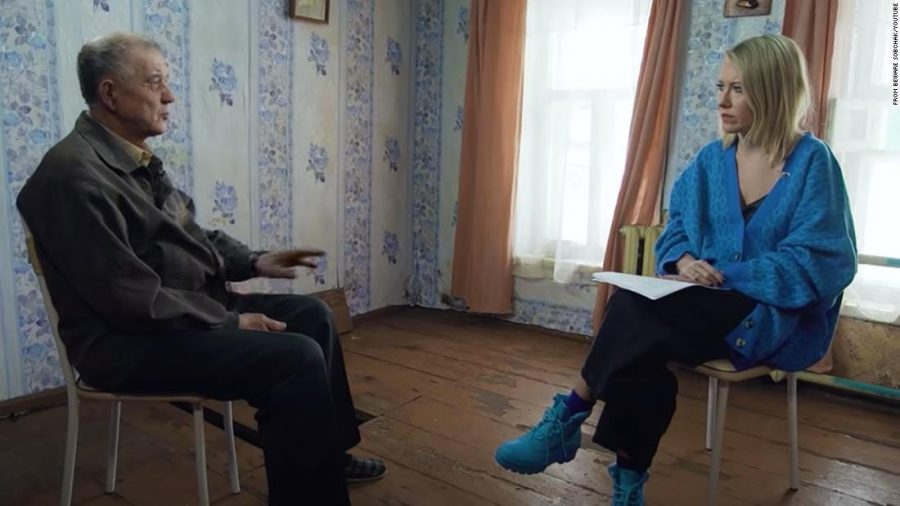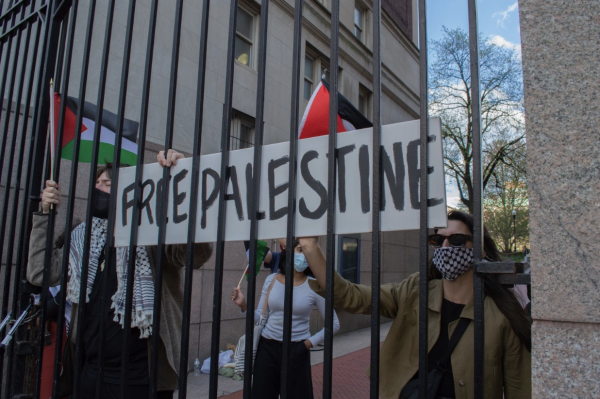Interview With Convicted Russian Rapist Is Immoral
Russian television presenter and ex-presidential candidate Ksenia Sobchak is facing criticism regarding her interview with a convicted and recently released serial rapist. Allowing such a villainous man to speak freely regarding his past victims, as he insinuated that he wished he could “take care” of them again, serves not only as a trigger for those he harmed directly but also to millions listening.
The interview with Viktor Mokhov, 70, sparked ethical debates about giving the convict air time. In 2000, Mokhov captured two underage girls and imprisoned them in a specially built cellar where he kept them for four years, raping them repeatedly. Mokhov spent 17 years in prison but was recently freed and returned to his home near the city of Ryazan. During this interview, Mokhov expressed his distressing interest in continuing his relationship with the women he had held captive and with the children he fathered with two of them.
Due to the interview’s harmful content, the survivors and over 5 million listeners questioned the ethics behind providing a platform to such an individual. From a legal standpoint and human rights point of view, Mokhov had every right to speak freely. However, when guided by a moral compass, as most people are lucky to be, his words and defamations caused more harm than good.
His insinuations push boundaries; even free speech and journalism can not morally argue.
The center of this argument is quite simple: giving the man who committed such heinous acts a platform will ensure that his name is remembered for years, his victims reduced to little more than “Mokhov’s conquests.” The women who endured poisonings, rape and starvation are forced to defend their views and experiences to a world only focused on what the prolific attacker has to say.
Certain parts of Mokhov’s sit-down prove to be threatening towards not only his past victims but the safety of their children. Mokhov claimed that one of the girls, Elena Samokhina, got pregnant in captivity, and she never gave birth again once she was freed. Mokhov suggested that he should “take care of her,” implying he could impregnate her again. He also said he still had feelings for Ekaterina Martynova and wanted to meet with her. Rather than stop the interview or even inquire whether this was a true threat against Samokhina, the interviewer continued. To some, this is what a true interviewer does. To most, this is where a true interviewer ought to choose what is morally right.
At the end of the day, Mokhov got his opportunity to speak. His threatening comments are reason enough that the discussion should never have taken place. Many defending Sobchak argue that at no point did she encourage the content of his responses but rather focused on the interview questions and techniques at hand.
However, in a progressing social climate following the #MeToo movement and a vast number of sexual assault allegations coming to light, one can not help but question the promotion of such a vile character. The interest in distressing crimes and serial killers has remained a sad constant in our society. This interview is a perfect example of adding to the notoriety of a man who does not deserve to be even acknowledged while objectifying the true victims of the story. With this love for delving into true crime being common knowledge, it should enrage victims that their voices are dulled by the fame granted to their attacker.
It is true that deciding who deserves free speech juxtaposes basic human rights. But how can one willingly speak with another who expresses nothing but ill intent? As a socialite and media mogul, Sobchak had the opportunity to use her platform to support Samokhina, Martynova or other sexual assault survivors but instead showed over 5 million individuals that profits and views are more important.
Sobchak responded to criticism by saying, “It is our right as journalists to explore the boundaries of good and evil. You cannot understand the nature of evil if you do not enter its territory.” This quote is powerful and resonates with many who teeter on which side of this argument to support. As a journalist, it is one’s duty to retrieve all of the information and present it honestly. Still, there is also a responsibility to tap into one’s own humanity to make decisions about the story’s morality. In the end, as humans whose moral compasses should revolve around compassion, logic and rationality, there should be no need to examine evil if the answer as to what it entails stands right in front of you.
Chloe Giulini, FCRH ’24, is an international studies major from Stamford, Conn.







